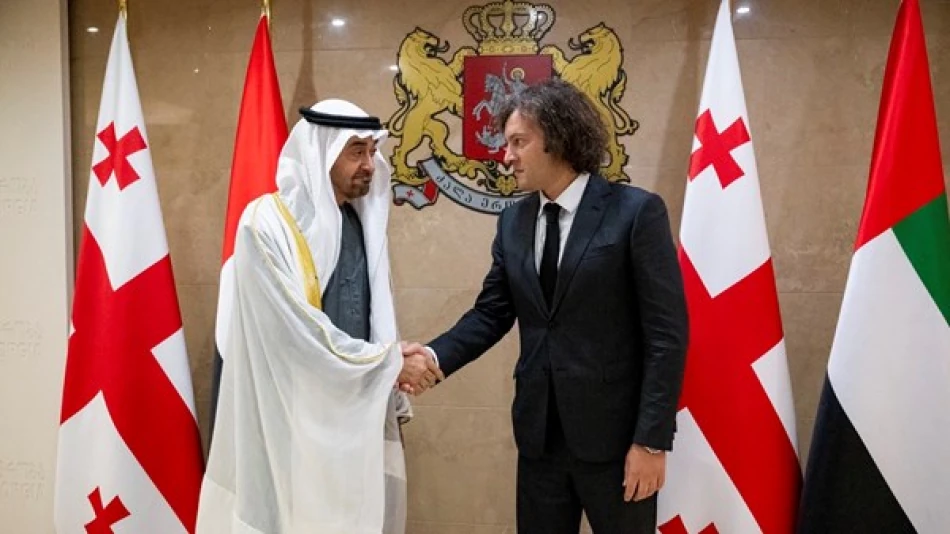
UAE Strengthens Ties with Caucasus Nations, President Affirms Commitment
UAE President Deepens Caucasus Ties as Gulf States Pivot Toward Strategic Energy Corridors
UAE President Sheikh Mohammed bin Zayed Al Nahyan has reinforced his country's commitment to expanding development partnerships across the Caucasus region during high-level talks in Georgia, signaling the Gulf state's growing interest in energy transit routes and economic diversification beyond traditional markets. The visit underscores a broader strategic shift as Middle Eastern powers seek new partnerships amid global supply chain realignments.
High-Level Diplomatic Push in Tbilisi
During his official visit to Georgia, Sheikh Mohammed bin Zayed met with Prime Minister Irakli Kobakhidze in Tbilisi to explore cooperation pathways that serve both nations' sustainable development priorities. The discussions were framed within the existing Comprehensive Economic Partnership Agreement between the two countries, which has laid groundwork for expanded bilateral trade and investment.
Writing on social media platform X, the UAE President emphasized that the talks focused on "cooperation paths that serve sustainable development priorities in both our countries and bring growth and prosperity to our peoples."
Strategic Significance of the Caucasus Pivot
Energy and Trade Corridor Ambitions
The UAE's intensified focus on the Caucasus region reflects a calculated move to tap into critical energy and trade corridors linking Europe, Asia, and the Middle East. Georgia, positioned at the crossroads of these routes, offers the Emirates access to the South Caucasus Pipeline and potential future energy projects that could diversify the UAE's investment portfolio beyond oil and gas.
This approach mirrors similar strategies employed by other Gulf states, particularly Qatar and Saudi Arabia, which have been expanding their economic footprint in Central Asia and Eastern Europe as part of broader Vision 2030-style diversification plans.
Geopolitical Calculations
The timing of this diplomatic engagement is particularly significant given the ongoing reconfiguration of global supply chains following recent geopolitical tensions. By strengthening ties with Caucasus nations, the UAE positions itself as a reliable partner for countries seeking alternatives to traditional European and Russian economic relationships.
Market and Investment Implications
For international investors, the UAE's Caucasus strategy signals several key opportunities. The comprehensive economic partnership framework suggests potential growth in sectors including renewable energy, technology transfer, and logistics infrastructure. Georgia's strategic location makes it an attractive hub for UAE companies looking to access broader regional markets.
The partnership also aligns with the UAE's broader economic strategy of becoming a global trade and financial hub, similar to Singapore's model but with greater emphasis on energy transition and sustainable development projects.
Regional Context and Future Prospects
This diplomatic initiative builds on the UAE's successful track record of building "cooperation bridges that achieve mutual interests for all," as Sheikh Mohammed bin Zayed described the approach. The strategy has proven effective in the UAE's relationships with African nations and Southeast Asian countries, where Emirati investment has grown substantially over the past decade.
The focus on sustainable development cooperation particularly resonates with Georgia's European integration aspirations and its need for foreign investment in green energy and infrastructure modernization. For the UAE, such partnerships provide opportunities to export clean energy expertise while securing new markets for its sovereign wealth funds and private sector players.
As global economic partnerships continue to evolve beyond traditional alliances, the UAE's methodical expansion into the Caucasus represents a pragmatic approach to securing long-term economic interests while supporting regional stability through increased economic interdependence.
Most Viewed News

 Layla Al Mansoori
Layla Al Mansoori






